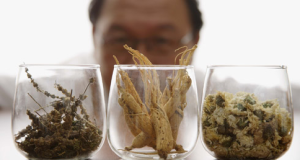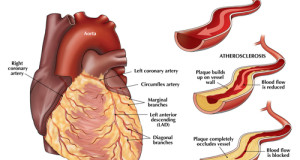Some say it’s hyped, but others say it’s just misunderstood. Hear from the researcher behind the most important studies and make your own decision! Garcinia Cambogia also known as the Malabar tamarind, is a small, sweet tropical tree fruit shaped like a pumpkin. In the late 1960s, scientists discovered an acid in the fruit somewhat similar to the citric ...
Read More »Monthly Archives: February 2016
I began to read moisturizer lables and decided whqat I could learn about making skin-friendly blends without all the chemicals. Good skin was one of my aims but to reduce the exposure to the many chemicals and artificially synthesized products was as much a principle as a preoccupation for me. As the occult dangers of many chemicals are only ...
Read More »Prostate Cancer Prevention
The ultimate goal is to prevent men from developing prostate cancer. Although significant progress has been made and genetic and environmental risk factors for prostate cancer have been identified, the evidence is not strong enough for conclusive recommendations. Studies with finasteride and dutasteride, which are typically used to treat men with the noncancerous condition BPH, have shown that these drugs ...
Read More »Skin Care Essentials – Avoid Cancer
Most skin cancers are preventable. To protect yourself, follow these skin cancer prevention tips: Avoid the sun during the middle of the day. For many people in North America, the sun’s rays are strongest between about 10 a.m. and 4 p.m. Schedule outdoor activities for other times of the day, even in winter or when the sky is cloudy.You absorb ...
Read More »Reversing Cardiovascular Disease
Reversing Atherosclerosis and Cardiovascular Disease Larry Sosna N.D. PhD HHP The Medical establishment would have all of us believe that coronary heart disease is irreversible and must lead to either the eventual so called heart attack due to clogged arteries; or to by-pass operations, stents, followed ...
Read More »Pygeum – Ethnobotany goes mainstream for prostate
The African cherry tree, pygeum africanum, is an evergreen found at higher elevations across Africa. Its medicinal use dates to the 1700s, when tribes in southern Africa taught early explorers how to use the tree’s bark to treat bladder discomfort.1 Pygeum extract has been used in Europe to treat benign prostatic hyperplasia since the 1960s, and is currently the most ...
Read More »How to treat bacterial infection naturally without antibiotics
When the patients get diagnosed with bacterial infection, the allopathic, or regular biomedicine MDs practice, treat it with antibiotics. Although antibiotics are the common treatment of bacterial infection there are several strong home remedies and natural solutions on how to defeat mild to moderate harmful bugs without antibiotics. Antibiotics are however invaluable when treating very progressed infections, sepsis (infections of ...
Read More »Traditional and Modern Uses of Natural Honey in Human Diseases: A Review
Iranian Journal of Basic Medical Sciences Abstract Honey is a by-product of flower nectar and the upper aero-digestive tract of the honey bee, which is concentrated through a dehydration process inside the bee hive. Honey has a very complex chemical composition that varies depending on the botanical source. It has been used both as food and medicine since ancient times. ...
Read More »Dangers of Low Testosterone in Women
Increasingly, medical scientists are finding more and more women with low testosterone. Men make a lot more testosterone then women but women must make it daily to have a normal androgen response. Testosterone sets the sex drive for both women and men Low testosterone in women diminished their physical Sex Drive down to virtually none. According to the Foundation for ...
Read More »Prostate – Causes of Higher Level PSA Which Are Non-cancerous
High PSA levels may be the first sign of prostate cancer however, only 25% of cases with a PSA of 4 to 10 are cancerous on average. Other, less serious conditions are much more common causes of abnormally high PSA values. Earlier this year, members of the United States Preventive Services Task Force (USPSTF) released guidelines recommending against prostate specific ...
Read More » Vitamin Agent The Health & Naturalistic Source
Vitamin Agent The Health & Naturalistic Source









